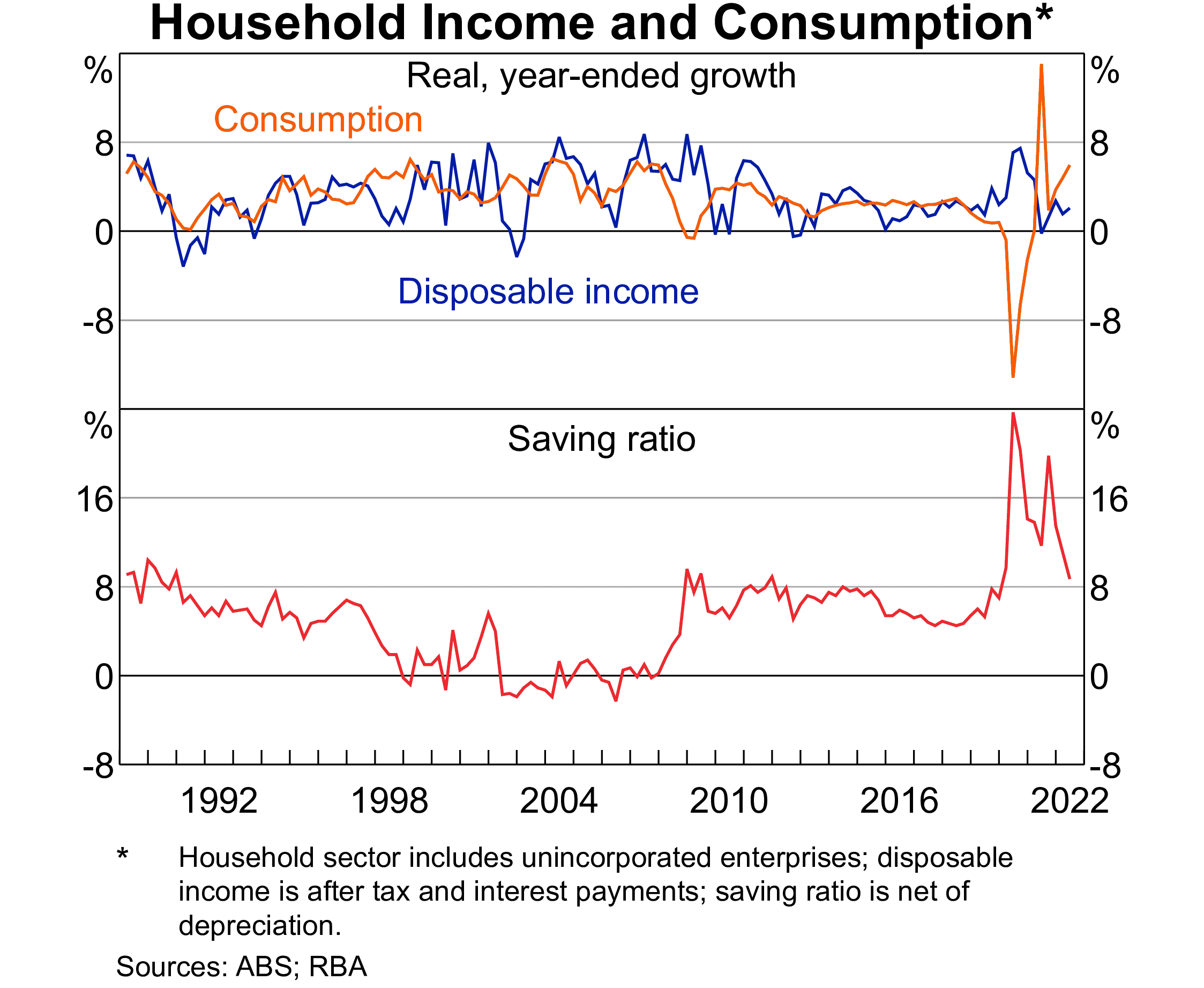The Australian economy may have finally reached its crunch point
‘Tis the season to start feeling pessimistic and tighten the budget if the latest data is anything to go by. There’s been gloom and doom predicted for markets all year, but it looks like Australian consumers and businesses have finally gotten the memo. On one hand, this is bad news for the economy. On the other, the Reserve Bank may have gotten an early Christmas present.
Talking about a recession
There’s been a number of signals for a recession across the year.
Inflation has remained persistently high while Central Banks world-wide have hiked interest rates in a desperate attempt to control it. Markets have been extremely volatile across the year as a result not only of inflation pressures, but also the energy crisis and war in Ukraine.
Despite of this, consumer spending and business conditions have remained strong.
There’s been record low unemployment and an accumulation of household savings as a result of the pandemic. In fact, household savings have been at highs which has offered a tremendous buffer against rising interest rates and increased cost of living.

Supply chain issues against high demand has also meant many businesses were able to book orders into the future.
People continued to buy and spend – especially on travel and leisure – enjoying freedom after extensive lockdowns. This has been a fantastic boon to businesses.
In this period, we’ve watched rate rise after rate rise. Are we finally going to see the economy snap?
Consumers are feeling the pinch
The Westpac Melbourne Institute Consumer Index fell by 6.9% to 78.0 in November. This is a significant number for a range of reasons.
- It’s lower than it was in the GFC and only slightly higher than at the start of the COVID-19 pandemic. The last time it was this low was the 90s recession.
- It indicates a spending slowdown which will hit businesses (and in turn the economy).
- The November data is a strong indicator of Christmas behaviour – this year, 40% of consumers said they would cut back on spending. Businesses and the economy may miss the “Santa rally” this year where increased spending offers an economic boost.
In addition to this, sentiment towards housing prices and the labour market weakened. Given both of these factors are traditionally strong drivers of the Australian economy (and have also pushed inflation), perhaps we’re starting to see the turn.
Consumer sentiment and business confidence: a partnership
It should come as little surprise that consumer sentiment ties into business confidence.
Business confidence represents sentiment towards the economic outlook for businesses and translates to how people invest in businesses and future growth prospects. If consumers are slowing down their spending, it stands to reason that the outlook is going to start to look poorer for businesses. Inventories may increase along with costs. Businesses may change how they plan for the future. For example, they may hold on hiring plans which would translate to overall employment data. Or they may reduce supply orders fearing they won’t be able to sell.
The NAB Monthly Business Survey for October 22 saw a decline in confidence, even though conditions had remained strong with spending still up and employment high. In fact, confidence was below the long-run average and was at a 10-month low.
There was some softening in forward orders while product prices have increased. Labour costs remain high but have started to moderate.
“Overall the survey suggests that firms are growing wary of the potential for a slower period ahead, despite ongoing strong demand,” said Alan Oster, Chief Economist for NAB.
The consumer sentiment index results would suggest the decline in business confidence is warranted.
The silver lining for the RBA?
All of this sounds like bad news for the Australian economy, so you may be wondering how it could possibly be a gift to anyone, let alone the Reserve Bank. The truth is, this news will suggest that the rate rises are starting to work and will hopefully translate to inflation eventually too.
In order for inflation to start to drop, the RBA needs unemployment to increase and consumer spending to decline. It also needs housing to drop off as it has been a buffer to the economy. You can read more about that here:
.png)
Other pushes for persistent inflation need to fall away too – such as supply chain issues against high demand… If demand falls away and supply chains have space to restore, then this also removes a pressure point.
This doesn’t mean that the next round of hikes is over. After all, rises have a lag effect. But perhaps we are getting close to the crunch point. While that means a world of pain still ahead, the RBA will see some promise even if no one else does.
Never miss an insight
If you're not an existing Livewire subscriber you can sign up to get free access to investment ideas and strategies from Australia's leading investors.
And you can follow my profile to stay up to date with other wires as they're published – don't forget to give them a “like”.
4 topics

